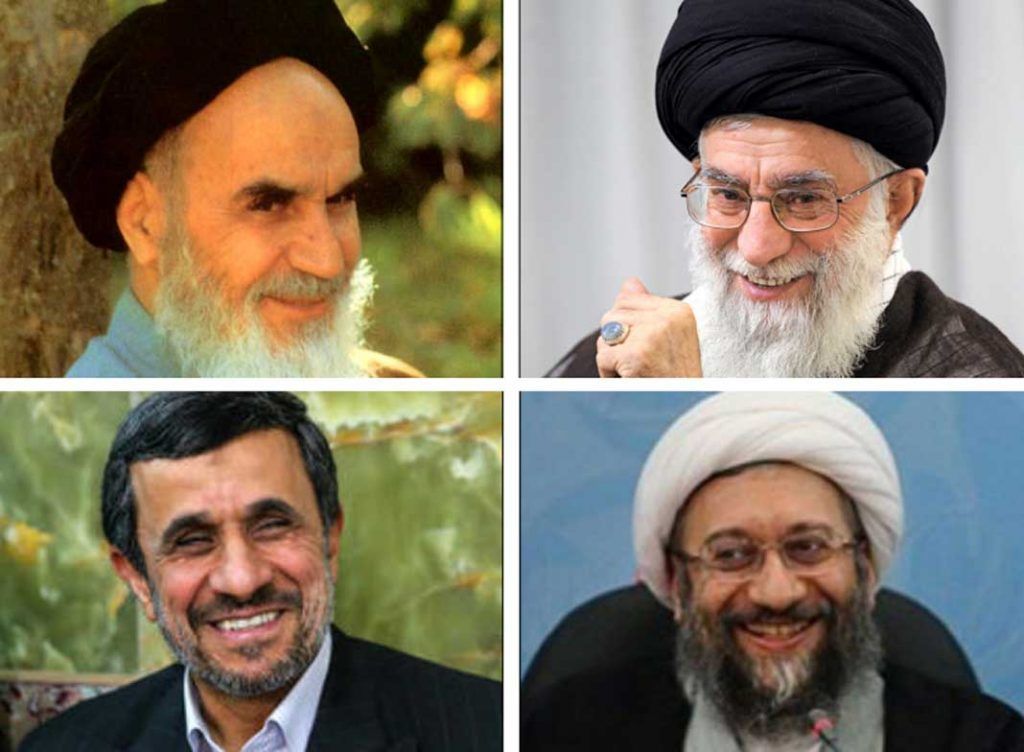December 13, 2016
In an uncharacteristically emotional speech on November 24, 2016, the head of Iran’s judiciary, Sadeq Ardeshir Larijani, lambasted those who have accused him and his office of financial corruption. He insisted that “the events in question dated back to 1995 and were sanctioned by the Supreme Leader. The money is not in my personal bank account.” Larijani’s comments prove that his actions had the full support of Ayatollah Khamenei, and that in his view crimes committed in the past should not be prosecuted now. He failed to mention that in the Islamic republic there is no statute of limitation on crimes such as misappropriation of public funds.

Larijani has been accused of inheriting and benefiting from the vast wealth amassed illegally by the former Tehran prosecutor-general, Ali Razini. In 1994, the former governor general of Iran’s central bank, Mohsen Nourbakhsh, publicly questioned Razini about the missing $1m from public funds that had ended up in his personal bank account. It seems that Razini’s successors, including Larijani, have been walking in his footsteps.
Funds totaling 310m US dollars, with over 75m dollars accumulated in annual interest, are allegedly in 63 separate bank accounts under Larijani’s name. Larijani, who practically is immune from prosecution, did not have to respond to the charges, yet he found it necessary to explain that it had been Razini who had passed the lucrative scheme down to his successors with complete blessing from the Supreme Leader.
Theft, extortion and confiscation of assets have been methods of choice for the regime and its elements. Revolutionary committees (early versions of police force) set up protection rackets and routinely stopped, searched and extorted money from ordinary citizens who were threatened with imprisonment and flogging if they didn’t pay up. The revolutionary court judges demanded blood money from political prisoners.
However, the greatest treasure of looted assets is held at the Execution of Imam Khomeini’s Order or EIKO, which is under the direct control of the Supreme Leader. According to Reuters news agency, the organization has assets worth over 100bn dollars, equivalent of country’s oil revenue for four years at today’s prices. Article 49 of Iran’s constitution designates the Supreme Leader as the legal caretaker of the hoard. In the Islamic republic, theft and bribery are as Halal (allowed) as mother’s milk.

Other institutions that practically own the government, and indeed the country, include Astan-e Quds-e Razavi, the endowment that manages the shrine of Imam Reza with the annual revenue of 210bn US dollars, the Foundation of the Oppressed and the Disabled (MFJ) with the estimated value of $3bn, and Khatam al-Anbiya, the engineering and construction wing of the Islamic Revolutionary Guards Corps, that controls more than 812 registered companies inside and outside of Iran.
The current and previous governments have all been implicated in some sort of financial irregularities and corruption. A number of the closest allies of former President Mahmoud Ahmadinejad have been convicted of corruption and are currently in prison. Among them are Mohammad Reza Karimi (former vice- president), Hamid Reza Baqaei (former vice president for executive affairs), Masoud Zaribafan (former presidential advisor), and Sharif Malekzadeh (former deputy foreign minister).
Questioning the ethics of the head of the judiciary is a risky business as Mahmoud Sadeqi, an MP from Tehran, found out after calling on Larijani to address the accusations leveled against him. He was immediately summoned by Abbas Ja’fari Dowlatabadi, Tehran’s prosecutor-general, who has described the accusations as baseless rumours, insisting that they are propagated by counter-revolutionary internet sites. Dowlatabadi has warned that re-publication of those accusations by any news media would be a crime.
Deputy speaker of Majlis (the Iranian parliament), Ali Motahhari, recently commented: “the actions by the persecutor-general’s office has alarmed deputies who fear that they could be summoned and even arrested at a drop of a hat, and it has made Majlis completely useless.”
[responsivevoice_button voice=”US English Female” buttontext=”Listen to this “]








